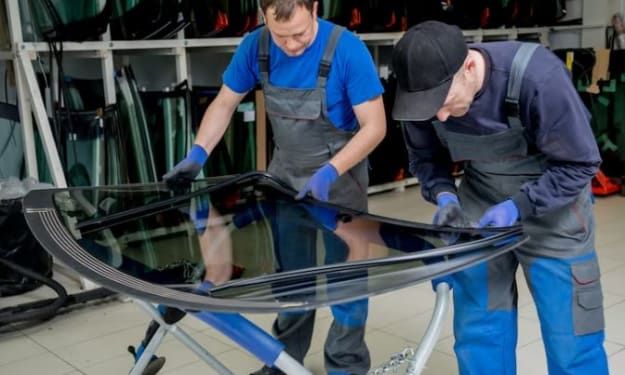Ultimate Guide to Volkswagen Brake Service: Maintenance Tips and Techniques
Guide to Volkswagen Brake Service

Maintaining the brakes of your Volkswagen is essential not only for your safety but also for the longevity and performance of your vehicle. Whether you drive a Golf, Jetta, Passat, or any other Volkswagen model, understanding how to properly care for and service your brakes can ensure they operate efficiently and reliably. This comprehensive guide will cover everything you need to know about Volkswagen brake service, including maintenance tips, common issues, and techniques to keep your brakes in optimal condition.
Importance of Brake Maintenance
The braking system is one of the most critical safety components in any vehicle, including Volkswagen. Proper maintenance ensures that your brakes can effectively stop your car when needed, especially in emergency situations. Routine brake service also helps prevent premature wear and costly repairs, ultimately saving you time and money.
Signs Your Volkswagen Needs Brake Service
Before diving into maintenance tips, it's essential to recognize the signs that indicate your Volkswagen may need brake service:
Squealing or Grinding Noise: If you hear squealing, squeaking, or grinding noises when you apply the brakes, it could indicate worn brake pads or damaged brake components.
Vibration or Pulsation: A pulsating brake pedal or steering wheel when braking may indicate warped brake rotors.
Soft or Spongy Brake Pedal: A brake pedal that feels soft or spongy when pressed could indicate air in the brake lines or a brake fluid leak.
Brake Warning Light: If the brake warning light on your dashboard illuminates, it signifies a potential issue with the brake system that requires immediate attention.
Basic Brake Maintenance Tips
Regular maintenance can help extend the life of your Volkswagen's brakes and ensure optimal performance. Here are some essential maintenance tips:
Inspect Brake Pads and Rotors: Regularly check the thickness of the brake pads. Volkswagen recommends replacing brake pads when they reach approximately 3 mm thickness. Also, inspect the brake rotors for wear, scoring, or signs of warping. Replace the rotors if they are below the minimum thickness or are damaged.
Brake Fluid Inspection and Flush: Check the brake fluid level regularly and top it off as needed with the specified type of brake fluid recommended in your Volkswagen owner's manual. Brake fluid should be flushed and replaced according to the manufacturer's recommended interval (usually every 2 years) to maintain optimal brake performance.
Check Brake Hoses and Lines: Inspect the brake hoses and lines for any signs of leaks, cracks, or damage. Ensure that all connections are secure and that there are no restrictions in the brake lines that could affect brake fluid flow.
Brake Caliper Maintenance: Inspect the brake calipers for signs of corrosion, sticking, or uneven wear. Clean and lubricate the caliper pins and slides as necessary to ensure smooth operation.
DIY Brake Pad Replacement
If you're comfortable with basic automotive maintenance and have the right tools, you can replace the brake pads on your Volkswagen yourself. Here’s a simplified step-by-step guide:
Prepare the Vehicle: Park on a level surface and secure the vehicle with wheel chocks. Loosen the lug nuts on the wheels where you'll be replacing the brake pads.
Remove the Wheel: Lift the vehicle using a jack and secure it with jack stands. Remove the lug nuts and take off the wheel to access the brake components.
Remove Old Brake Pads: Locate the brake caliper and remove the caliper bolts. Carefully lift the caliper off the rotor and suspend it using a wire hanger or bungee cord to avoid putting stress on the brake hose. Remove the old brake pads from the caliper bracket.
Install New Brake Pads: Place the new brake pads into the caliper bracket. Apply brake grease to the back of the brake pads (avoiding the friction surface) to reduce noise and vibration.
Reassemble and Test: Reinstall the caliper over the brake pads and rotor. Tighten the caliper bolts to the manufacturer's specifications. Repeat the process for the other wheels if necessary. Reinstall the wheels, lower the vehicle, and torque the lug nuts to the recommended specification. Pump the brake pedal a few times to seat the brake pads before driving.
Professional Brake Service
While DIY brake pad replacement is possible for some, it’s crucial to have your Volkswagen's brakes inspected and serviced regularly by a certified technician. Professional service ensures that all components are properly inspected, adjusted, and replaced as needed according to Volkswagen's specifications. A professional technician can also diagnose and address any underlying issues that may not be apparent to the untrained eye.
Conclusion
Proper maintenance of your Volkswagen's brakes is vital for your safety and the performance of your vehicle. By following the maintenance tips outlined in this guide and addressing any signs of brake wear or issues promptly, you can ensure that your Volkswagen stops reliably and efficiently. Whether you perform basic maintenance yourself or entrust your vehicle to a professional technician, investing in brake service will contribute to a safer and more enjoyable driving experience with your Volkswagen for years to come.
About the Creator
Fast Lane European
We at Fast lane European are San Jose's leading BMW, MINI & Volvo service center since 2001. We are dedicated to providing dealership quality repairs at an affordable price without sacrificing quality or service.
Enjoyed the story? Support the Creator.
Subscribe for free to receive all their stories in your feed. You could also pledge your support or give them a one-off tip, letting them know you appreciate their work.






Comments
There are no comments for this story
Be the first to respond and start the conversation.